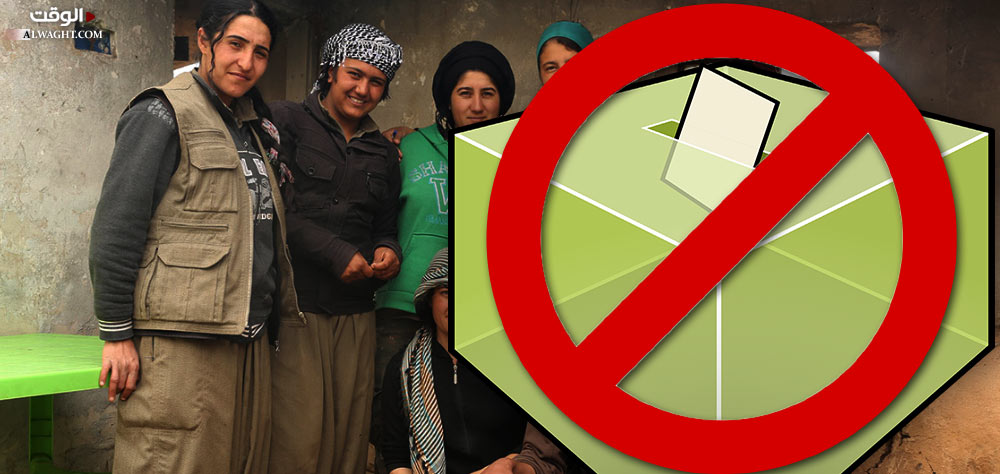Alwaght- Iraqi Kurdistan's Gorran party lawmaker and spokesman to the “No To Referendum Presently” campaign Raboun Maaruf released a statement on Wednesday saying the expected referendum on independence of Kurdistan region will not work for the Kurdish interests.
Politicians and lawmakers from different Kurdish factions launched the campaign “No To Referendum Presently” on the same day.
“We’ll announce officially launching the campaign ‘No To Referendum Presently’, he was quoted as saying, adding that “the decision of referendum at present time won’t serve the higher interest of Kurds”.
The Gorran party lawmaker further stated “The referendum is not a step towards independence and forming justifiable democratic Republic but aims to avoid the objectives and to disintegrate.”
President Masoud Barzani of Kurdistan set the date of the referendum for September 25 in early June. He repeatedly and through speeches, interviews to the media and also publishing articles including one published by the Washington Post in late June stressed on the intention to go ahead with plans to organize the independence poll.
The insistence of the Kurdish leader is coming while he failed to garner enough backing for the bid. Beside facing the challenge of disapproval of the regional sides and Iraq’s central government, he now has to deal with internal opposite voices rising from different parties and figures that apparently led to foundation of No To Referendum Presently campaign, which reminds and warns the organizers of the serious consequences and risks of their measure.
As it looks, the internal divisions between the various Kurdish political parties will present the biggest challenge ahead of the autonomous region's way towards organizing the vote operation. The Gorran (Change) party along with the Kurdistan Islamic Movement (KIM) are now the main sides that come against the Barzani-led effort and question its timeliness. The poll’s legal mechanism is also challenged by these two opposition parties and they so far declined to join the Kurdistan Referendum Committee (KRC) that was formed in late April and was commissioned with making preparations for the voting. The two parties also boycotted a June conference of Kurdish parties in Erbil that were to finalize date for referendum. They argued that holding such a meeting in the shadow of parliament shutdown was invalid and made no sense.
Meanwhile, other parties, mainly Patriotic Union of Kurdistan (PUK) and Kurdistan Islamic Union (KIU) have called for independence referendum organization but through legal processes and under supervision of the regional parliament. Their key demand is that the independence plebiscite bill and the process of its holding should be enacted and directed by the parliament which was closed since October 2015 by the Kurdistan Democratic Party-led government.
Some senior PUK members suggest that referendum under an active parliament will have strong validity and recommended that Kurdistan political leaders discuss the case with Iraqi officials and also open channels with the regional, and even international parties on the step.
Beside the legal obstacles and the challenge of control of the “disputed regions” –on top of them the oil-rich Kirkuk–, another effective challenge is the anti-referendum views of the non-Kurdish factions including the Arabs, Turkmens, Shabaks, and Yazidis. They so far proved antipathetic to any independent Kurdish state. This roadblock ahead of the pro-referendum forces is more witnessed in the disputed areas than in the Kurdish cities.
No To Referendum Presently campaign in focus
1. Birth of such a campaign right in the heart of the Kurdistan region and drawing support from various factions lays bare the organizers' understanding of the stakes a referendum could bring to the Kurdish region. Their insistence on their anti-referendum vision stems from an insight into the future which prefigures isolation for Kurdistan.
2. Many analysts maintain that the poll could lead to escalated tensions and resultant violence between diverse ethno-sectarian groups in Iraq and even compound the post-ISIS security conditions. A coalition of Iraqi forces has been pushing against ISIS terrorist group through a campaign that is yet to conclude in different parts of Iraq.
Undergoing a series of crises in an over-a-decade period, including US invasion that toppled Saddam Hussein and then seizure of major territories by ISIS, Iraq has so far failed to fully make its way to stabilization which demands different Iraqi parties’ cohesion for reconstruction of various war-hit areas and restoration of the past sovereignty.
The anti-referendum campaign was formed to warn that after ISIS obliteration in the country the atmosphere is not appropriate to raise Kurdish independence demands. The campaigners see it unacceptable to seek statehood while other parts of Iraq have just been liberated and are struggling with massive destruction.
Moreover, another drive to oppose Barzani's pro-statehood campaign is an understanding of the new world, new period, and new requirements. In the new period, Iraq has greater and more vital issues to be busy with. Besides, any independence bid without taking into account the requirements not only fails to provide strong economy, welfare, and security, but also plunges in irreversibly complicated situation.



























